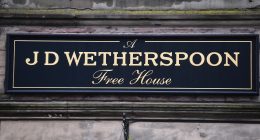THOUSANDS of people struggling with debt will now be able to get it written off without having to resort to more costly solutions.
A change to rules will give more people the option to tackle debts from credit cards and loans, as well as everyday bills like utilities and council tax, for just £90.
Debt relief orders (DROs) can be used to tackle a range of debt up to £30,000 from tomorrow (June 29).
Previously the limit was £20,000 and anyone with debts over this amount had to go for more complicated individual voluntary arrangement (IVA) or bankruptcy.
It’s estimated that around 13,000 people a year will now be eligible for a DRO.
A DRO means you don’t have to repay debts for an agreed period of time, usually a year, and creditors can’t take action against you.
What debts can you write off with a debt relief order (DRO)?
Debts covered by a DRO
- credit cards, overdrafts and loans
- arrears with rent*, utility bills, telephone bills, council tax and income tax
- benefits overpayments
- hire purchase or conditional sale agreements
- buy now – pay later agreements
- bills for services like vets or solicitors
- debts you owe to friends and family
- business debts
*Your landlord can still take action to evict you
Debts not covered by a DRO
- magistrates court fines and confiscation orders relating to criminal activity
- child support and maintenance
- student loans
- social fund loans
- compensation for death and injury
When that period comes to an end, the debt is written off if you still can’t pay it off.
The change to DRO rules follows a consultation by the insolvency service early this year, and it also includes a doubling of the limit on the value of assets owned to be eligible.
Those with savings or other items worth £2,000 or less are now eligible for a DRO, where previously it was £1,000. And the same goes for the value of a vehicle.
There is also an increase to the “surplus income” limit to qualify for a DRO.
People in debt with £75 or less leftover each month after covering bills and everyday expenses will be able to get a DRO – previously the amount was set at £50.
All the these changes to the eligibility criteria which concern money will change from Tuesday (June 29).
There are also conditions for getting a DRO that are not based on money and these have not changed, for instance you still can’t own your own home and get a DRO.
A DRO is simpler and cheaper than other debt options.
Debt adviser Sara Williams who writes the DebtCamel blog, said: “It is very good news that the Insolvency Service has relaxed the DRO criteria so more people can get one. The £90 DRO fee is much lower than the £680 bankruptcy fee.
“It you qualify for a DRO it is always a better option for you than an IVA – you don’t have to make any monthly payments in a DRO, compared to paying for five or six years in an IVA.
“So a DRO is cheaper and it is all over much quicker than an IVA – and it is also less risky. Only about 1% of DROs fail, but more than a quarter of IVAs do.”
The change has been welcomed by debt charities, particularly with debt issues growing because of the pandemic.
Lorraine Charlton, a debt expert at Citizens Advice said: “Increasing the eligibility limits for Debt Relief Orders means more people will be able to qualify.
How to cut the cost of your debt
IF you’re in large amounts of debt it can be really worrying. Here are some tips from Citizens Advice on how you can take action.
Check your bank balance on a regular basis – knowing your spending patterns is the first step to managing your money
Work out your budget – by writing down your income and taking away your essential bills such as food and transport
If you have money left over, plan in advance what else you’ll spend or save. If you don’t, look at ways to cut your costs
Pay off more than the minimum – If you’ve got credit card debts aim to pay off more than the minimum amount on your credit card each month to bring down your bill quicker
Pay your most expensive credit card sooner – If you have more than one credit card and can’t pay them off in full each month, prioritise the most expensive card (the one with the highest interest rate)
Prioritise your debts – If you’ve got several debts and you can’t afford to pay them all it’s important to prioritise them
Your rent, mortgage, council tax and energy bills should be paid first because the consequences can be more serious if you don’t pay
Get advice – If you’re struggling to pay your debts month after month it’s important you get advice as soon as possible, before they build up even further
Groups like Citizens Advice and National Debtline can help you prioritise and negotiate with your creditors to offer you more affordable repayment plans
“With many more people likely to be struggling with unmanageable debt because of the pandemic, this is a welcome change.”
There was a sharp rise in bankruptcies and IVAs at the start of the year, but there have also been rising concerns around the suitability of IVAs and fears over mis-selling.
Sue Anderson, head of media at debt charity StepChange, said: “Debt Relief Orders can act as a valuable form of ‘reset’ from debt for some people, and they’re cheaper to access than other forms of insolvency.
“They’re likely to be particularly useful for some people facing debt accumulated during the pandemic.”
Who can get a debt relief order?
To get a debt relief order (DRO) you need to be eligible. Money-wise the conditions from June 29 are:
- You owe less than £30,0000
- You don’t have savings or own assets worth more than £2,000
- You don’t have a vehicle worth more than £2,000 (separate to the assets above)
- You don’t have spare income each month after essentials of £75
You’ll also be eligible of the following apply:
- You don’t own your own home
- You’ve lived or worked in England and Wales in the last three years
What debts can I use a debt relief order for?
You can use a DRO for the following debts:
- credit cards, overdrafts and loans
- arrears with rent*, utility bills, telephone bills, council tax and income tax
- benefits overpayments
- hire purchase or conditional sale agreements
- buy now – pay later agreements
- bills for services like vets or solicitors
- debts you owe to friends and family
- business debts
*Your landlord can still take action to evict you
You won’t be able to use a DRO for the following debts:
- magistrates court fines and confiscation orders relating to criminal activity
- child support and maintenance
- student loans
- social fund loans
- compensation for death and injury
How do I get a debt relief order and how will it affect my finances?
A DRO means your debts are written off, and your creditors can’t ask for payments.
A DRO usually lasts for a year and at the end of the DRO period, your debt is “discharged” which means it’s written off.
A DRO will stay on your credit record for six years, and this could make it more difficult to get credit in the future.
Your tenancy agreement can also be affected and Citizens Advice recommends checking this with a debt adviser first.
Private landlords and lettings agents may check if you have a DRO when doing a credit check, and they could turn you down or charge you more.
A DRO can also affect applications for British citizenship, and you should get advice from an immigration specilaist.
Your bank can freeze your account if you have a DRO, or stop you from opening one.
During the DRO period you’ll also have some restrictions.
You won’t be able to borrow more than £500 without letting the lender know about the DRO, and you can’t set up a limited company or become a company director.
Your name and address will appear on the insolvency service’s Individual Insolvency Register, which is free for anyone to look at, for the period of the DRO and for three month after.
There are other things to be aware of before getting a DRO and you should speak to a debt adviser before so you understand your full range of options.
How to get debt help for free
THERE are lots of groups who can help you with your problem debts.
- Citizens Advice – 0808 800 9060
- StepChange – 0800 138 1111
- National Debtline – 0808 808 4000
- Debt Advice Foundation – 0800 043 4050
You can also find information about Debt Management Plans (DMP) and Individual Voluntary Arrangements (IVA) on the Money Advice Service website and on the Government’s Gov.uk site.
Speak to one of these organisations – don’t be tempted to use a claims management firm that will claim it can write-off lots of your debts in return for a large up-front fee.
To get a DRO you’ll need to apply through a DRO adviser who makes the application to the Insolvency Service.
A specialist DRO adviser, also called an approved intermediary, can be found through Citizens Advice.
They will help you check if you’re eligible and apply and you need to be totally honest with them about your situation.
An official receiver at the Insolvency Service will consider your application. You’ll have to pay a £90 fee.
Your application can either be accepted, deferred until there’s more information, or refused.
You can be refused if you’re not eligible or because information is false.
If you’re asked for more information you’ll need to co-operate with the official receiver.
If you’re turned down you’ll be told why and you can challenge the decision.
If you’re accepted, you won’t have to make payments on the debts and the creditors won’t be able to take any action against you, with two exceptions: landlords if you’re in rent arrears and bailiffs who’ve taken your belongings.
You’ll need to keep paying your normal expenses like rent and bills, and any debts that are not part of the DRO, and you won’t be able to add new debts to it after.
If your circumstances change during the DRO period you’ll have to let them know.
A DRO is not your only option for tackling debt and you should seek advice to understand your options and what might be best for you.
You can go for a debt management plan (DMP) which is an informal agreement with creditors to make payments more manageable and there are debt consolidation loans.
An individual voluntary arrangement or bankruptcy are more serious, lasting longer and with potentially a bugger affect on your finances.
Meanwhile, millions struggling with problem debts can get a 60-day “breathing space” against prosecution and bailiffs thanks to a new scheme.
A quarter of young people using Buy Now Pay Later can’t afford food, rent or bills, Citizens Advice says.
Here’s how unpaid debts are sold on and could end up costing you HUNDREDS of pounds more.














